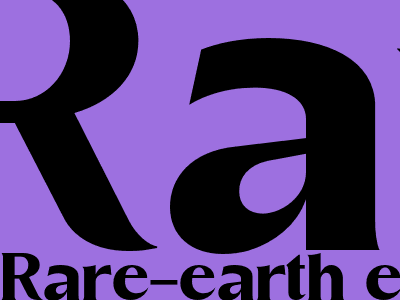
Rare-Earth Elements: A Global Race for Critical Materials
China's Dominance and the Importance of Central Asia
Rare-earth elements (REEs) are a group of 17 chemically similar metals that are essential for a wide range of modern technologies, including electronics, renewable energy, and defense systems. China currently dominates the global REE supply chain, producing over 60% of the world's output. However, Central Asia is emerging as a potential alternative source of these critical materials.
Central Asia is home to significant REE deposits, particularly in Kazakhstan, Kyrgyzstan, and Tajikistan. These countries have the potential to diversify the global REE supply chain and reduce China's dominance. However, they face challenges such as limited infrastructure, lack of technical expertise, and political instability.
Global Demand and Technological Advancements
The global demand for REEs is expected to continue to grow in the coming years, driven by the increasing use of these materials in clean energy technologies, electric vehicles, and other emerging industries. This demand has spurred interest in finding new sources of REEs and developing more efficient extraction and processing techniques.
Technological advancements are also playing a role in the REE industry. Researchers are developing new methods to extract REEs from unconventional sources, such as coal ash and electronic waste. These technologies could potentially increase the availability of these critical materials and reduce reliance on traditional mining operations.
Environmental Concerns and Sustainable Practices
REE mining and processing can have negative environmental impacts, including air and water pollution, land degradation, and radioactive waste disposal. It is important to develop sustainable practices to minimize these impacts and protect the environment.
Some companies are exploring innovative approaches to REE extraction that are more environmentally friendly. For example, some researchers are using bacteria to extract REEs from wastewater, while others are developing methods to recycle REEs from electronic waste.
International Cooperation and Policy Considerations
The global REE industry is complex and involves multiple stakeholders, including governments, mining companies, and end-users. International cooperation is essential to ensure a stable and sustainable supply of REEs.
Governments can play a role in developing policies that encourage responsible REE mining and processing practices, promoting research and innovation, and addressing environmental concerns. By working together, countries can ensure that the global REE supply chain is secure and sustainable for future generations.